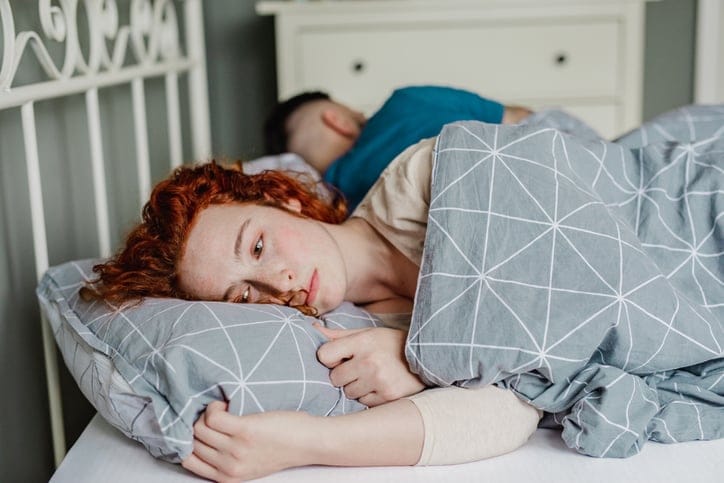Depression affects all aspects of a person’s life, especially their closest relationships. Because it’s so all-consuming, it can make them think and act in ways they wouldn’t normally. While you might think it would be more likely to cause a person to withdraw from relationships altogether, it can actually raise a person’s likelihood of cheating. Here’s why that’s the case.
- Low self-esteem leads people to seek attention from the wrong people. One of the hallmarks of depression is the feeling that you’re worthless. In this state of mind, it’s common for a person to enact the old saying, “We accept the love we think we deserve.” If their partner is kind, loving, and respectful, they may feel guilty and even misunderstood, and seek out someone who sees the “real” them.
- They may be more self-absorbed. Depression can cause people to be so absorbed with their own overwhelming emotions that they lose touch with those around them. The only thing that exists for them is their internal struggle, and the feelings and needs of their partner are no longer a consideration. This emotional state can lead to seemingly selfish and uncharacteristic behavior. If they meet someone they’re attracted to, their inability to recognize how their actions affect others, including their partner, may lead them to initiate an affair.
- They tend to have self-destructive tendencies. People with depression often pursue unhealthy or damaging activities as their negative thoughts about themselves become a self-fulfilling prophecy. A depressed person may feel that they’re unworthy of their partner or undeserving of a happy relationship and go out of their way to prove it to themselves. Sabotaging anything good in their life is a way of showing themselves that their toxic self-image is justified.
- They may be addicted to sex as a form of self-medication. Depression is thought to be caused by complex imbalances and miscommunications in the brain. Low levels of neurotransmitters integral to mood regulation such as dopamine cause feelings of hopelessness and unhappiness. In contrast, sex floods your body with dopamine and oxytocin, the “feel-good” hormones (though only for a brief period). People who suffer from depression may therefore seek affairs as a way to release these hormones, almost as an alternative to prescription antidepressants.
- Depression can cause a person to feel disconnected from their partner. Another consequence of low levels of dopamine and oxytocin is difficulty feeling close to those around you. People with depression often feel isolated and cut off from their loved ones, and may even feel rejected. Cheating on their partner may therefore be a misguided and desperate attempt to find the closeness they used to feel with their significant other.
- They may experience a loss of perspective. When a person is depressed, the present is so exhausting and heavy that it becomes the only reality. The future is merely a distant concept that wields no influence over one’s decisions. Such a feeling can lead a person to lose sight of the advantages of long-term commitment, and the potential consequences of an affair. The short-term pleasure that can be gained from cheating on a partner is all that matters.
- Men are prone to risky behavior when depressed. Depression affects men and women differently. Men can become reckless, seeking out activities that feel dangerous. The secretiveness and high stakes of an affair may therefore become an irresistible source of excitement for men suffering from depression, no matter how loyal they are to their partners. The riskier, the better.
- Changes in how a person sees reality may lead to cruel behavior. Another common symptom of depression is misplaced resentment and irritability. The illness changes how a person perceives reality, sometimes causing them to retaliate against their partner for imagined slights. The combination of hopelessness, a short temper, and a warped perception of the world can cause a person to display vengeful behavior to hurt their partner, such as cheating.
- They have a Fear of losing interest in sex. Depression causes a person to lose interest in many pleasurable things, including sex. This is an especially common symptom in women and may lead to feelings of guilt, embarrassment, or even denial. Some people find a low libido so distressing that they attribute it to a lack of attraction to their partner and seek out sex with other people to prove to themselves that they still find it enjoyable.
- They don’t feel like themselves. The changes in your brain that take place during depression can change the way a person views him or herself. People with depression may seem low, moody, and sluggish, but some may seem like different people entirely. A person who experiences significant changes during depression may find it difficult to connect with the people around them because they themselves feel so different. This feeling of unfamiliarity may make them want to meet new people with whom they connect because feeling isolated from the people they once felt close to is unbearable.
- They have difficulty initiating the inevitable. Breaking up with your partner is hard, even when you’re in a perfect state of mental health. But it can feel almost impossible when you’re depressed. When summoning the determination to get out of bed in the morning is a battle, making a significant life change is not within the realm of contemplation. Because of this, people who suffer from depression may not end a relationship that they know they want out of, choosing instead to move on from it in every other way. This may include searching for a new partner.



